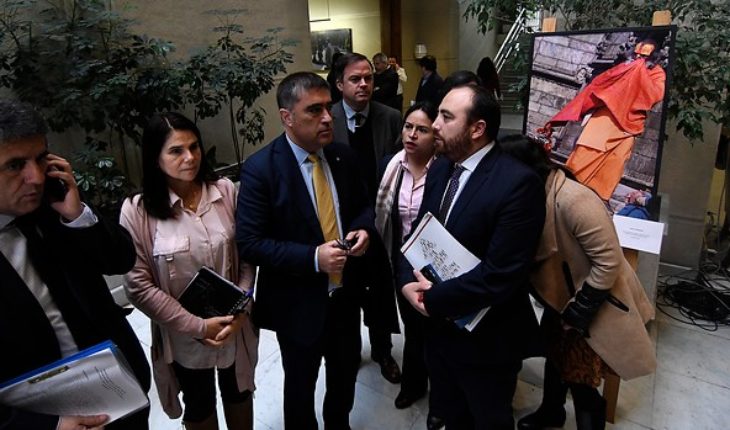In January 2012, the national renewal directives and the Christian Democracy, then led by Carlos Larraín and Ignacio Walker, respectively crossed the sidewalk and presented an agreement to reform the political system in Chile.
Seven years later the actors are repeated, and both parties met in a new sample of political flirtation to try to refloat that same understanding, taking advantage of the issue is again in the arena after the announcement of President Sebastián Piñera in the Public account of June 1 where it raised the idea of reducing the number of parliamentarians to 120 deputies and 40 senators, reversing the increase approved by the Congress during the government of Michelle Bachelet. The meeting held at the Congress met the directive on Christian Democracy, led by the president of the DC, Fuad Chahin, Vice President Camila Avilés, the national secretary, David Morales; Plus the head of Deputies, Gabriel Ascencio and deputy Matías Walker. By national renewal, the president, Mario Desbordes, the Congresswoman Ximena Ossandón and the head of Banca Alejandro Santana participated.
It was a first approach, but there are already certain lights. In what was clear coincidence is that neither party is available to return to the binominal system. “We are not willing to go back to a binominal system properly or to a disguised binominal system as proposed by the Government, that is rather a distractor, a flyer of lights and for that we are not available,” warned Fuad Chahin.
In the same line, Desbordes was emphatic in pointing out that “there are two things that we have discussed in different instances of national renewal, the first thing that the system guarantees plurality, all represented in this Congress, that there is not a political sector that is under The table and the second is very important that the change made does not mean returning to the binominal system, there would be no point in making an adjustment that returns to a system that has already been left behind. ”
As for the number of parliamentarians, in RN warned that “we have always raised that we do not agree to lower the amount,” said Desbordes, while Chahín pointed out that for Christian democracy the number of congressmen is not a dogma, But “the important thing is that we do not retreat in representation, in proportionality, that we do not remove diversity from Congress. Look for the number of parliamentarians that allow us to have a good functioning of the Congress, first we have to put the objectives and then the instruments is a mistake. ”
Semi-presidential regime
It should be recalled that the 2012 agreement dubbed “a new political regime for Chile” not only contemplated a change to the binominal. It also considered the implementation of a semi-presidential regime that separates the institution of the Presidency (Head of State) from that of head of government (Prime Minister), as well as measures to strengthen and democratize the regional and municipal government (with election and others to enhance the quality of the policy (transparency and role of the parties, public financing of the communities, prohibition of indefinite re-election in all the positions of popular election, simultaneous and binding primaries and the Obligation for Parties to be fully democratic in their internal practice, among others.
In DC hope to review with RN how much progress has been made in these points to sharpen a new proposal, taking into account that several of these points as the end of the binominal and the direct election of regional governors are already concrete. “The first thing we have agreed on is to see what the points of that agreement are, that there have already been legislative advances and which have been pending to retake them or update them. It is not a question of dusting something that is a dead letter, “helmsman DC said.
But where there is a space to move forward is the semi presidentialism, a goal that does not appear on the agenda of changes posed by the currency. “We believe that it is very important that political reforms include not only a proportional, representative electoral system, but also that discussing more structural changes such as semi-presidentialism, in that agreement is expressly speaking of advancing to a Semi-presidential system with the figure of a prime minister who separates the head of government with the head of state, “said Chahin.
translated from Spanish: The political flirtation of RN and the DC: directives sit down to try to refloat the agreement of 2012
June 11, 2019 |





